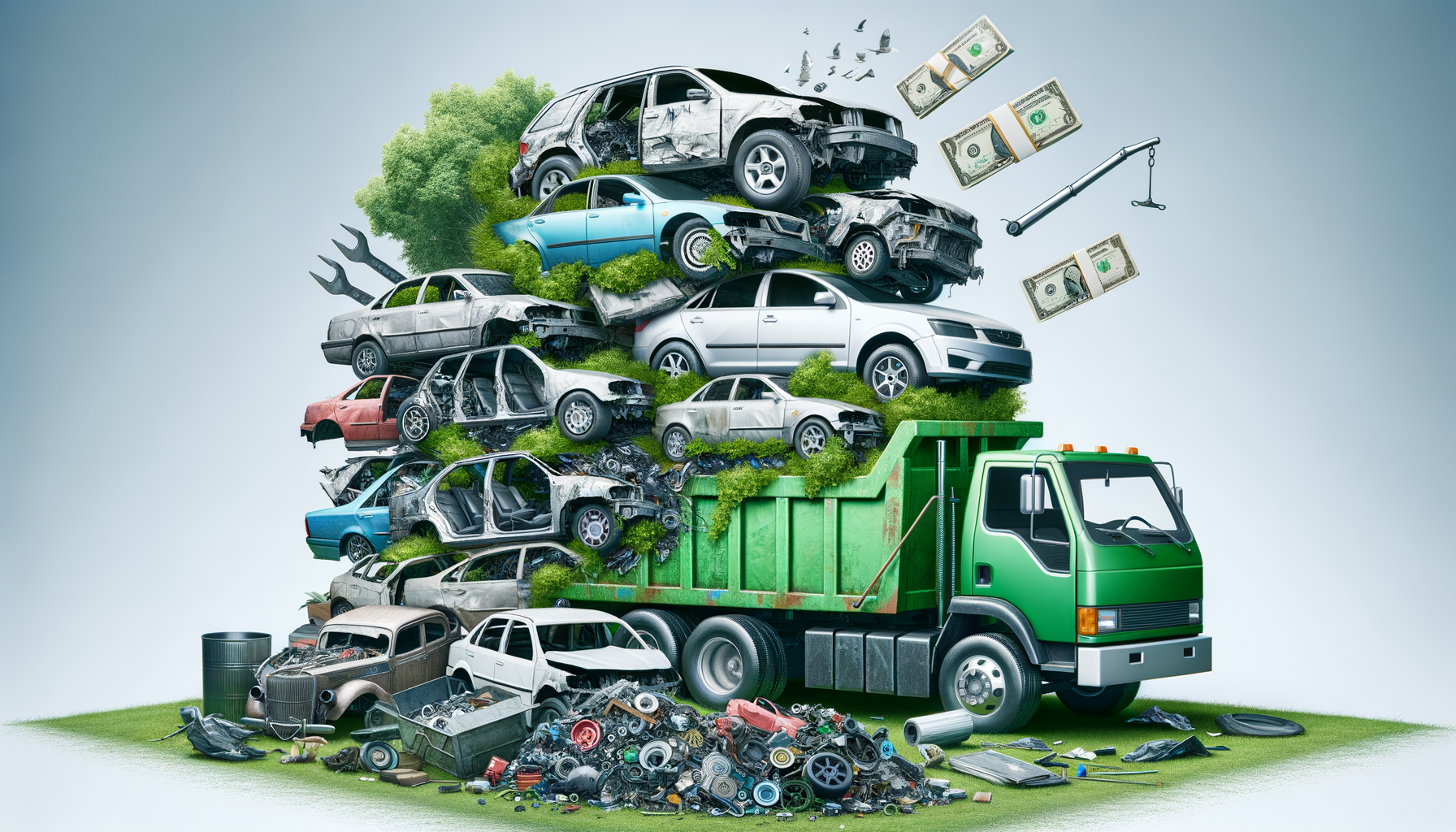The Importance of Scrap Car Removal Services
Scrap car removal services play a crucial role in managing automotive waste effectively. With millions of vehicles reaching the end of their life cycle every year, disposing of them responsibly is essential for both environmental sustainability and economic efficiency. These services provide a systematic approach to recycling and reusing vehicle components, reducing the need for new raw materials and minimizing pollution.
One of the primary benefits of scrap car removal is the reduction of environmental impact. Old vehicles often leak hazardous fluids and release pollutants that can contaminate soil and water sources. By utilizing professional removal services, these risks are mitigated as the vehicles are dismantled and processed in environmentally controlled facilities. Additionally, recycling metals from cars reduces the energy consumption required for mining and processing new metals, contributing to a decrease in greenhouse gas emissions.
Economically, scrap car removal services offer significant advantages. They provide vehicle owners with a convenient solution to dispose of their unwanted cars while also offering financial compensation. Many companies pay for the scrap metal value of the car, turning what might be considered a liability into a financial opportunity. This not only incentivizes proper disposal but also supports the circular economy by reintegrating materials back into the production cycle.
Understanding the Process of Scrap Car Removal
The process of scrap car removal is more streamlined than one might expect. It typically begins with the vehicle owner contacting a removal service provider. Most companies offer free quotes and will arrange a convenient time for vehicle pickup. This initial step ensures that the owner knows what to expect in terms of compensation and logistics.
Once the vehicle is collected, it is transported to a processing facility where it undergoes a thorough evaluation. This assessment determines which parts can be salvaged and reused, and which materials can be recycled. Components like engines, transmissions, and catalytic converters are often removed for refurbishment or resale, while metals like steel and aluminum are separated for recycling.
The final steps involve environmentally safe disposal of any non-recyclable materials and hazardous substances. Fluids such as oil, coolant, and brake fluid are drained and disposed of according to environmental regulations. The remaining car shell is then crushed and sent to metal recycling facilities. This comprehensive process not only ensures that the car is disposed of responsibly but also maximizes the recovery of valuable resources.
Environmental Benefits of Scrap Car Recycling
Scrap car recycling offers numerous environmental benefits that contribute to a more sustainable future. By recovering and reusing materials from old vehicles, the demand for new resources is significantly reduced. This not only conserves natural resources but also decreases the energy required for manufacturing new products.
Recycling metals from cars, for instance, is far less energy-intensive than extracting and processing new ores. According to industry estimates, recycling steel saves about 74% of the energy compared to producing it from raw materials. This energy saving translates to a reduction in carbon emissions, helping mitigate the effects of climate change.
Moreover, recycling helps prevent the accumulation of automotive waste in landfills. Cars contain numerous toxic substances, including lead, mercury, and cadmium, which can leach into the environment if not disposed of properly. By recycling, these hazardous materials are safely managed, reducing their potential impact on ecosystems and human health.
Economic Impact and Opportunities in the Scrap Car Industry
The scrap car industry not only supports environmental goals but also generates significant economic benefits. It creates jobs in various sectors, including logistics, recycling, and manufacturing. Workers are needed to dismantle vehicles, sort materials, and transport them to appropriate facilities, contributing to local economies.
For vehicle owners, scrap car removal services offer a financial incentive. Many companies provide cash payments for old vehicles, which can be a welcome source of income for those looking to dispose of their cars. This payment is often based on the current market value of scrap metal, providing a fair return for the vehicle’s recyclable components.
Additionally, the industry supports the production of affordable parts for vehicle repairs. Salvaged components from scrapped vehicles are sold to repair shops and individual consumers, offering cost-effective alternatives to new parts. This not only helps reduce repair costs for consumers but also extends the life of existing vehicles, promoting resource efficiency.
Choosing the Right Scrap Car Removal Service
Selecting a reliable scrap car removal service is crucial to ensuring a smooth and beneficial experience. When choosing a service, consider factors such as reputation, customer reviews, and the range of services offered. A reputable company will provide transparent pricing, efficient service, and proper documentation for the transaction.
It’s also important to verify that the company adheres to environmental regulations and ethical practices. This includes ensuring that they have the necessary licenses and certifications to operate legally and responsibly. A company committed to sustainability will prioritize recycling and safe disposal of hazardous materials, aligning with broader environmental goals.
Finally, consider the convenience and customer service offered by the company. Many services provide free towing and flexible scheduling to accommodate the owner’s needs. Good customer service, clear communication, and a hassle-free process can make the experience more positive and rewarding.




Leave a Reply